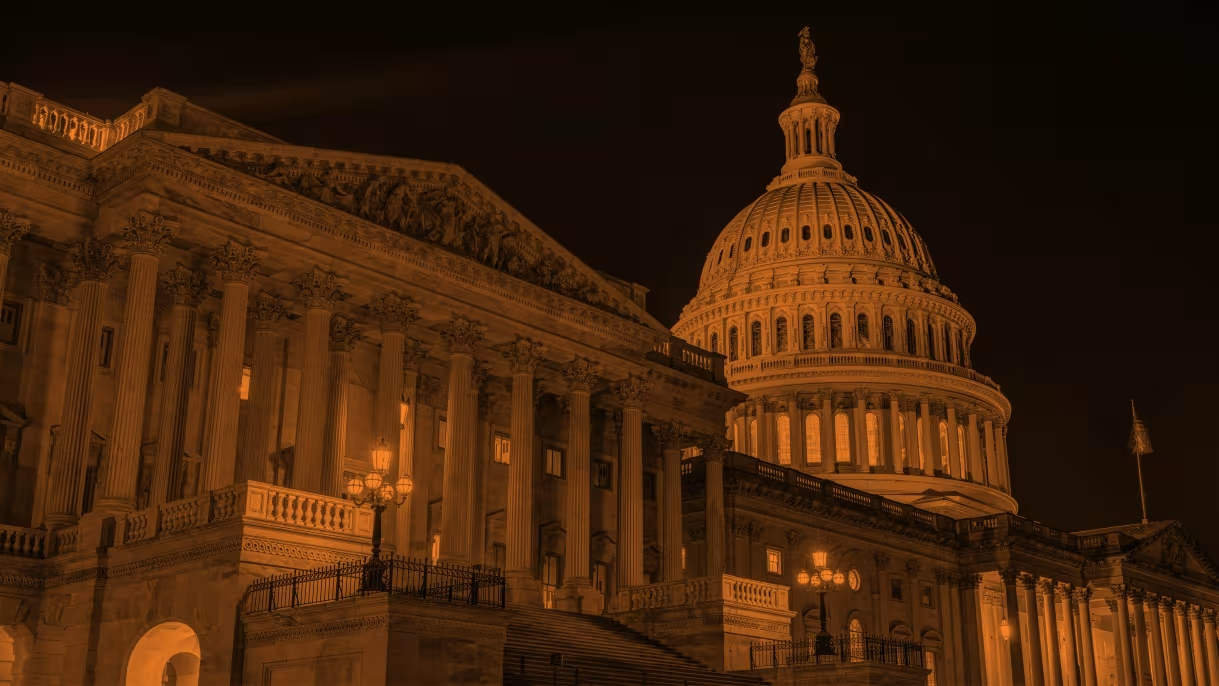

Princeton SPIA’s D.C. Center Hosts Diplomatic Series to Discuss Policy Topics Ranging from Transatlantic Relations to Economic Statecraft
Leveraging its location in the nation’s capital, the Princeton School of Public and International Affairs’ SPIA D.C. Center has served as a gathering space not only for domestic policymakers but also for diplomats representing their governments in Washington.
The Diplomatic Corps Dinner Series has welcomed ambassadors and diplomats from four regions for substantive policy conversations and engagement with Princeton faculty.
“The objective is to establish relationships with the diplomatic corps, invite them to become part of the life of the Center, and to find ways for them, their foreign ministries, and their governments to engage directly with our faculty, students, and alumni, here in Washington, on campus in Princeton, and in their respective capitals,” said SPIA DC Center Director Zach Vertin.
The series kicked off last year with ambassadors from Latin America convening to discuss opportunities for collaboration as well as political and security trends in the region. The evening featured Princeton SPIA’s Miguel A. Centeno, the Musgrave Professor of Sociology and a professor of sociology and international affairs, and Deborah J. Yashar, the Donald E. Stokes Professor of Public and International Affairs, a professor of politics and international affairs, and director of the Princeton Institute for International and Regional Studies, and Vertin. Also participating was Ambassador Jeffrey DeLaurentis, a former ambassador at the U.S. Mission to the United Nations and chief of mission at the U.S. Embassy in Cuba.
A second dinner, convening ambassadors and senior diplomats from the Asia-Pacific region, featured introductory remarks from Kevin Rudd, Australia’s ambassador to the United States and the country’s former prime minister. The group explored political and economic trends in the Asia-Pacific, U.S.-China dynamics, and opportunities for the year ahead.
The series picked back up this March with a convening of European ambassadors and diplomats. After learning more about the School and how their governments could engage with Princeton, they turned to a discussion of transatlantic relations. Helping to frame the discussion were three Princeton SPIA faculty members: Andrew Moravcsik, a professor of politics and international affairs and director of the Liechtenstein Institute on Self-Determination; Ethan Kapstein, executive director of the Empirical Studies of Conflict Project and a lecturer with rank of professor; and Sophie Meunier, a senior research scholar and lecturer in public and international affairs. Each offered insights from recent engagements across Europe.
The most recent gathering in the series focused on the Middle East and welcomed nine ambassadors from across the region. Among the topics of discussion were Syrian reconstruction, the Israel-Hamas conflict, recent negotiations with Iran, and changes to U.S. policy under the Trump administration. Participants included SPIA Dean Amaney Jamal, Salam Fayyad, a visiting senior scholar and the Daniella Lipper Coules '95 Distinguished Visitor in Foreign Affairs, Visiting Research Scholar Amal Mudallali, Vertin, and two SPIA graduate students.
“When we opened the SPIA D.C. Center, one of our goals was for it to be a platform for the School’s faculty and researchers to share knowledge with U.S. policymakers – but also those from all over the world,” Jamal said. “The Diplomatic Dinners are a perfect example of this vision in action. I’m grateful the School can be of such outstanding service.”
Second-year MPA student Sydney Taylor attended the dinner and called it “one of the coolest experiences I’ve had so far at SPIA.”
“These dinners are incredibly important for building relationships and growing the brand of Princeton and the SPIA D.C. Center, especially among representatives from foreign governments,” Taylor said. “It was fascinating to listen in on a conversation about some of the most pressing issues in the region, including the potential for a new Iran nuclear deal, the war in Gaza, and regional stability. The ambassadors also showed a lot of interest in the programs at SPIA, future opportunities for engagement, and promoting SPIA’s programs to students in their home countries.”
Indeed, as Vertin noted, the gatherings were more than just a chance to socialize.
“In each of the dinners we’ve debated contemporary issues—those of concern to each Ambassador and those where our faculty have particular expertise to bring to bear,” he said. “These dinners have wrestled with a diverse range of issues, from democratic backsliding in Latin America, to security architecture in Europe, to conflict resolution efforts Israel and Gaza. And in each scenario, we’ve discussed the role of American foreign policy amid a rapidly changing international order.”
Vertin said that the series would resume in the fall with a dinner for ambassadors from Africa.
“These dinners have yielded research ideas, student visits to embassies, engagement with governments abroad, and high-level visits to campus,” Vertin said. “Many diplomats and their colleagues now regularly participate in public and private programming at the Center.”

